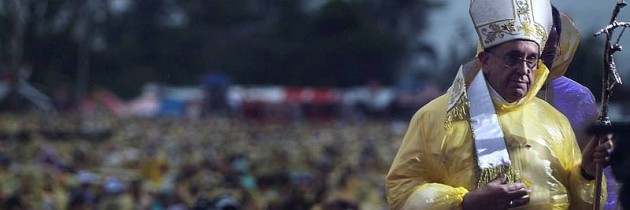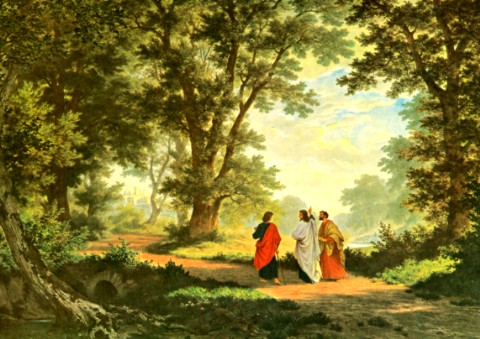How Do We Explain What We Experience?
 Many years ago, I went with a Girl Scout troop to Disneyland. It was a rather unusual trip, because there were only two girls left in the troop and both were graduating Seniors. One girl’s father had passed away and her mother had no one with whom to leave her other child, so the girl’s brother came along too. The other girl’s young nephew came along because her mother, the Scout Leader/Grandmother, was caring for the child.
Many years ago, I went with a Girl Scout troop to Disneyland. It was a rather unusual trip, because there were only two girls left in the troop and both were graduating Seniors. One girl’s father had passed away and her mother had no one with whom to leave her other child, so the girl’s brother came along too. The other girl’s young nephew came along because her mother, the Scout Leader/Grandmother, was caring for the child.
After a busy and enjoyable day in which the girls and other family enjoyed the more exciting rides and toddler and Grandmother enjoyed the more sedate ones, all joined for dinner. After dinner, there was the usual performance that closes the evening. The toddler played happily as the show unfolded. Music blared over the surrounding area. As the story became more complex, the music became pensive, excited, threatening, suspenseful, foreboding, and so forth. Each time the storyline took a different twist or turn, the music clued in the audience about how they were to feel and what was going on in the narrative.
The only one who clearly was unaffected was the toddler. He simply played happily, climbing up the fence rails, running up and down the sidewalk and otherwise enjoying the world in which he found himself. The music told him nothing. There was no nonverbal explanation of the story for him to experience, because he didn’t have words to put with the music that would tell the meaning without saying them. A frightening story evoked no fear in him. Similarly, when the story’s ending proved to be happy, that also produced no reaction of happy satisfaction for him.
How we explain what we experience depends on our family and cultural stories of how things came to be. The same essential phenomenon may be explained in many different ways. Each culture has its stories to explain “the whys and wherefores” of the world as experienced day to day. We hear those stories and they become our worldview and fundamental explanatory system as we grow from infancy into adulthood.
The Hebrew scriptures begin with stories of how everything came to be the way they are. Two separate stories are told, because there are different questions requiring answers. In the first story, we hear how God created the heavens and the earth and found them all good. In that story, humans were created and given stewardship over creation. Men and women were created as equals and all was pronounced good.
In the second story, humans are formed from the clay of the earth and placed in a beautiful Garden. Again, men and women are created to be equals. The garden is filled with everything the people might want and they are free to explore and take advantage of it all. The only restriction is that they may not eat the fruit of the Tree of Knowledge of Good and Evil or of the Tree of Life. There is an opponent of the Lord God in this story, the Deceiver (aka Satan). This Deceiver enters the garden and starts talking with the woman who becomes mother of all humans, Eve. He asks her about the Lord’s prohibition on eating from the Tree of the Knowledge of Good and Evil, then convinces her to taste the fruit. Once she tastes it, she encourages her husband, Adam, to taste as well. Once they taste the fruit, they become aware of their difference from the rest of the beings in the garden. They hide from the Lord when He comes to walk with them in the beauty of the evening, noting that they are naked. The Lord realizes that they have taken/received knowledge they previously had never even suspected existed. They had been like the toddler at Disneyland, unaware and gloriously untouched by the pain and suffering of separation from the One who loved and created them. Now they hide from him.
In the Hebrew story, the man and his wife must bear the consequences of their action. The serpent (Satan) also had to experience consequences as he was condemned to travel on his belly for the rest of time. He and humans would become enemies. But for humans, a different kind of consequence resulted. They were escorted out of the Garden in which they had been created and in which they lived closely with the Lord. They could not return there – no turning back time. Now they would live by their work. They would experience hardship and conflict. They would die eventually. (Gen 3:9-15)
Sometimes we hear these stories and think about the consequences as punishment. What would life here have been like if we humans and our ancestors had never disobeyed the Lord by tasting and receiving knowledge of Good and Evil? Would they/we have remained as innocent as young children forever? When a child doesn’t grow past the innocence of early childhood, we protect and care for them, knowing that something is seriously different about their experience of life and the world. Such children may grow in age, but they don’t grow in the way a normal child will mature into adulthood.
An important insight from this second story of creation is that the evil and the conflicts we see and experience in our world are not the result of a creation that is itself a rivalry or duality between forces of good and forces of evil. In this Hebrew explanation of the source of evil in the world, we see human free will as the source of the conflict. Humans can choose how to react to the call of the Lord. They can hear and obey (listen deeply) or they can hear and choose not to live by the rules of the Lord.
Yet, who can know what the world would ever be if humans had remained in the Garden of Eden? Would we be truly human? We certainly would be different. Nowhere nearly as attuned to discord. But would we appreciate beauty and cooperation as well if we had never experienced their absence?
The story of the closing of Eden to humans continues with a brief statement that the Lord made clothing for Adam and Eve and helped them learn how to live on the land and provide for themselves and others. In essence, they now got to learn how to find or grow and prepare food. They got to make clothing and learn how to stay warm and dry at night or on rainy days. They got to have children, not painlessly, but with the promise of others with whom to share love, discovery, and companionship. They became adults, with all the joys and struggles of adulthood. They also still had a great Love underlying this process and supporting them in it.
This theme of responsibility for actions and of the trickery of the Deceiver flows through the Scriptures, both Hebrew and Christian. Jesus is accused of driving out demons by using the power of a demon. He notes that such a reality would be ridiculous and points out that the Holy Spirit is at work in our lives, helping us to see the difference between good and evil and to choose the good. Our relationships are broader than just our biological and social families. Our families are those with whom we share a common love and faithful obedience to the Lord’s call of us to holiness, to choose the good now that we have seen the contrast between good and evil. (Mk 3:20-35)
St. Paul talks about the spirit of faith that leads us to speak of what we have seen and experienced of the love of the Lord. Opposition will come, but that will pass. It is transitory, not at all comparable with the glory of eternity that will be open to those who, having grown up and tasted the fruit of the tree of the knowledge of good and evil now choose the good. Those who follow the wisdom of that tree can be confident that they will live in God’s kingdom when all is said and done. (2 Cor 4:13-5:1)
These early stories are not intended to be scientific explanations of how everything came to be or why things happen the way they do. They are poetic images, music in the night, that help us understand what is going on and where we fit into the picture. They offer hope for us today and into the future. Life is not easy. It’s not always an Eden. But the Lord God didn’t stay in Eden after locking the door as humans moved into the world. The Lord God came with them and remains with all of us as we too make our way through the challenges of life, choosing goodness and accepting the results of our choice to follow.
As we move through our week, may we be open to learn new ways of living from our God. Where will we find him present? What music of life will we hear that tells us we are moving from danger into safety in our stories? What choices will we make this week that lead those who are alone or afraid into a place of acceptance and courage?
The Lord God is with us. May we be always aware of his presence and open to love.
Readings for the Tenth Sunday in Ordinary Time – Cycle B
Read More






















